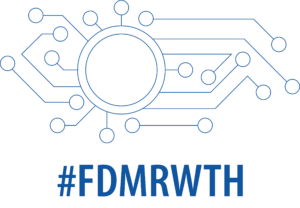
Source: Unsplash
In May, the virtual dialogue platform pid-network.de and the social media channels on Mastodon and Twitter went online to provide information on developments around the topic of persistent identifiers (PID). Behind this is the project PID Network Germany, which was launched in March and which we would like to introduce in our new blog post.
The PID Network Germany project
PIDs have become indispensable in today’s increasingly digital scientific landscape. However, the growing importance of PIDs in everyday research is accompanied by increasing demands on their efficient usability. In addition, users are confronted with a great variety of very different offers of PID systems and their possible uses.
These facts have prompted the project “PID Network Deutschland – Netzwerk für die Förderung von persistenten Identifikatoren in Wissenschaft und Kultur” (PID Network Germany – Network for the Promotion of Persistent Identifiers in Science and Culture), funded by the Deutsche Forschungsgemeinschaft (DFG, German Research Foundation). The project was launched in March this year with the aim of establishing a network of already existing and currently forming actors in science and culture that promotes and strengthens the application, implementation, standardisation and international connectivity of PID systems at local, national and international level.
PID Network Germany’s partner organisations include DataCite, the German National Library, the Helmholtz Open Science Office, Bielefeld University Library and the Technical Information Library (TIB) Hannover.
Dialogue platform and social media channels recently online
In May, the associated virtual dialogue platform pid-network.de went online. This not only supports the project’s public relations work, but also the transfer of knowledge on the topic and bundles central information on PIDs – from the areas of Open Access and RDM, among others. During the project, the platform will gradually be expanded to include information on international standards, best practices, FAQs and advisory services.
Currently, the website contains information on the project, support services and other national and international initiatives, as well as on PID application areas on which the project’s activities will focus. Relevant news and event announcements are communicated in the integrated blog.
In addition, all news on PID development, application and implementation will be shared via the project’s social media channels on Mastodon and Twitter.
PID4NFDI will complement PID Network
PID4NFDI is dedicated to the establishment of Persistent Identifier Services for the Nationale Forschungsdateninfrastruktur (NFDI; German National Research Data Infrastructure). The proposal was submitted for the initialisation phase of Base4NFDI and is currently being reviewed for funding.
The goals include promoting the acceptance of PIDs and the development and operation of NFDI-specific services.
PID4NFDI will also complement the PID Network Germany. Both projects have a strong overlap in terms of organisational structure as well as participating persons, initiatives and institutions. It is therefore not surprising that close cooperation between PID4NFDI and the PID Network has already been agreed in advance. While PID4NFDI deals with the needs of the RDM community, the PID Network will have a greater focus on targeted use cases and networks in the future.
Learn More
The PID Network is available via e-mail for questions and suggestions. The PID Forum offers a first introduction to the topic.
Recently, the project was also the subject of the NFDI InfraTalk. The presentation can be viewed on YouTube at any time. The associated slides have been published on Zenodo.
If you have any questions about NFDI or Research Data Management in general, simply contact the IT-ServiceDesk. The RDM team looks forward to hearing from you.
Responsible for the content of this article is Sophia Nosthoff.





Leave a Reply
You must be logged in to post a comment.